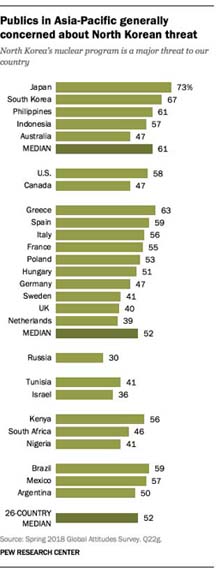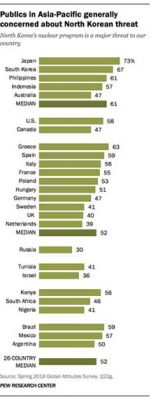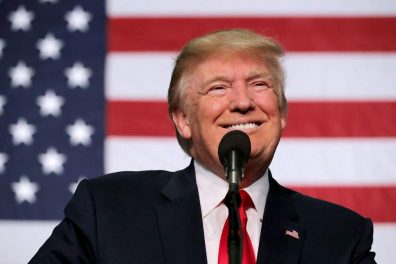NEW YORK, NY – Talks between US President Donald Trump and North Korean ‘Supreme Leader’ Kim Jong Un abruptly ended during their second summit on February 28 in Hanoi, Vietnam without any sort of agreement between the two leaders. Kim Jong Un surprisingly thought, without any concession on his part, that President Trump would simply lift all US economic sanctions that are hurting North Korea.
But the US, as expected and knowing Trump’s negotiating style, would not meet Kim Jong Un’s request to lift all sanctions on North Korea without first securing its meaningful commitment to denuclearization. President Trump remarked in his solo news conference in Hanoi, Vietnam before heading back to Washington: “he was unprepared to do that. Sometimes you have to walk.”
We thought Kim Jong Un may have already learned something from the first Summit on June 12, 2018 in Singapore, not to ask for any concession without offering something in return, especially with a tough negotiator like Donald Trump.
Remember that President Trump also just walked away from a second White House meeting with House Speaker Nancy Pelosi and Senator Charles Schumer when they simply said ‘No’ to his request to fund a border wall between the United States and Mexico? Donald Trump always ensures that there are alternative means of obtaining what he wants.
If Kim Jung Un wants to stop US sanctions, change world perception of his country in to a positive one, discontinue economic stagnation, he must come up with some offer. According to 2017 UN data, North Korea is one of the poorest economies in the world, with a gross domestic product of just above $17 billion, where the average person ekes out a living with $685 of income per year, ranking 178 among 193 countries, or in the bottom eight percent. In contrast, South Korea had $1,578 billion in GDP where its average resident earned $30,025 a year, and ranked at top eight percent in the world.
This no-deal outcome does not mean the two leaders may not meet again in the future, or that their negotiating teams may not communicate through other means. On the possibility of opening a liaison office in North Korea, President Trump remarked to reporters that it was ‘not a bad idea’ and Kim Jong Un called such a next step ‘welcomable’.
The issue of the growing arsenal of nuclear weapons by North Korea – the US military estimates it has 60 nuclear weapons – and its increasing capability to fire them by having test-fired them repeatedly (numbering 117 such tests since 30 November 2017, according to a Wikipedia article) has worried people all over the world, including six among every ten Filipinos, based on a three-month (May 14-August 18, 2018) survey by the Pew Research Center of people in 26 countries spanning six continents.
Japanese: 73% Worried
The most worried have been people in neighboring Japan where nearly three of four respondents are apprehensive, as there have already been six missile firings over Japan. The second most recent one was on 29 August, 2017, when a Hwasong-12 ballistic missile was fired over Hokkaido, Japan’s second largest island, by North Korea from Pyongyang Sunan International Airport, presumably using a mobile launcher. It traveled around 1,675 miles before crashing into the Pacific Ocean.
Just a few days later on 3 September, 2017, North Korea claimed to have successfully tested a thermonuclear bomb, also known as a hydrogen bomb. Corresponding seismic activity similar to an earthquake of magnitude 6.3 was reported by the US Geological Survey making the blast around 10 times more powerful than previous detonations by the country. Later the bomb yield was estimated to be 250 kilotons, based on further study of the seismic data
Another firing of the same type of missile followed on 15 September, 2017 traveling about 2,300 miles before falling into the Pacific Ocean. The rogue regimes also possesses the Hwasong-15 missile with a range of over 8,000 miles, capable of reaching any continent of the world except Antarctica and South America.
The least worried are the people of Russia, but even there 30 percent expressed concern. Among other interesting findings are that older people (50+ in age) are more worried – 66 percent – than younger ones (18-29) – 42 percent. Among women, more than two-thirds (68 percent) said North Korea’s nuclear program is a major threat, while less than half (49 percent) of men said that.
Kumar (Kem) Balani has an AB Journalism degree from the University of the Philippines and an MA in Politics from New York University. He is founder and publisher of Biz India Online News since 2002. Go to www.BizIndia.net to read book reviews, features, news, opinion columns, and videos on business, entertainment, investing, law, sports, technology, and more.
This column first appeared in the Daily Tribune in the Philippines on Sunday, March 18, 2019. Read Kumar Balani’s other columns in that newspaper: http://tribune.net.ph/index.php/author/kumar-balani








